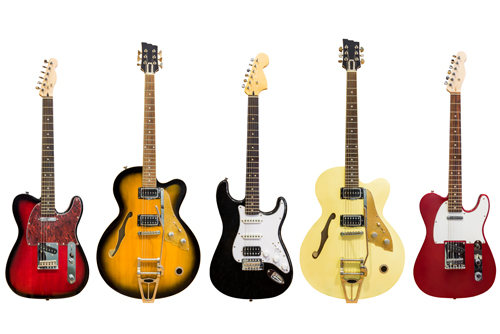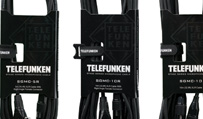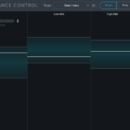Your daily practicing has paid off and you don’t consider yourself a beginner guitarist anymore. And with the upgrade in skills, you feel like you deserve a reward in the form of a new electric guitar––a better, intermediate one that you can use for gigs and recording your own compositions. Something that will inspire and motivate you to keep improving as a musician. The thing is, while you don’t consider yourself a newbie anymore, you still have a beginner’s budget and are keen on saving money while making music. So, what to do?
1. Take a look at midrange offerings from top brands.
If you’re looking to upgrade but not wanting to spend a fortune on your next electric guitar, big-name brands have models in a more consumer-friendly price range. Epiphone, Gibson, Fender, ESP, Paul Reed Smith, Ibanez and Jackson all have electric guitar models that can be bought new in the $400 to $1,000 price range––not bad, especially considering that these models come equipped with premium features like locking tremolos, higher-quality fingerboard wood such as ebony as well as active electronics.
Take a look at guitar manufacturers’ product catalogs to see the different guitars that are within your budget. Take time to read guitar reviews and watch the guitars in action. If you choose well, the guitar you pick will last you your entire music career and would not cause you any unnecessary financial pain (frequent professional setups, repairs and whatnot). Branded electrics also hold their resale value well, so if ever you decide to build up a fund for a higher-end guitar, you can sell off your old axe for a good sum.
2. Buy a used electric guitar.
If you can’t afford buying a brand-name electric guitar new, why not buy it used? Quality-made instruments from Fender, Gibson and other brands are tough and hold up well even when they’ve been previously owned. They just need a set of new strings, a few adjustments and some tender polishing with a cleaning cloth and they’re good as new.
There are many places you can check out for used electric guitars: online selling platforms like eBay, Amazon and Craigslist; guitar-centric music forums and websites; Facebook groups or community pages; even big-box guitar stores and local music shops would have a “used instruments” section where you can poke around.
As with buying other secondhand items, you need to be discerning with purchasing a secondhand guitar especially if you’re doing so online. Do a background/reputation check on the seller and ask for clear, detailed photos.
3. Go for a B-stock or a refurbished guitar.
Another way to spend less on your next axe is to choose a refurbished or a B-stock guitar. Refurbished guitars are those that have been repaired because of some damage, structural flaw or playability issue. These guitars are marked as “used” and at a lower cost than their perfect-from-the-start counterparts. B-stock guitars, also called blems, are those that have been found to have cosmetic flaws and marked as “factory second” guitars and you can buy these at a lower cost as well.
Refurbs are a good option for those looking for brand-name guitars but have a rather limited budget. Since these guitars have all been professionally restored and repaired, you really won’t notice the difference. They look new, they play like new but they are similar in cost to top-tier secondhand guitars.
Blems, too, are great for those who don’t mind a little scratch here or a weird dab of lacquer there. A minor blemish on the surface doesn’t affect playability and tone quality, and you’re bound to put some scratches on the guitar yourself anyway.
4. Visit a music store.
In particular, the back of the music store where they store all the discounted items. Many local music stores, especially family-run ones, don’t really have a website where they sell their items. There’s a good chance you can find good deals on electric guitars in these stores’ clearance section, so try your luck there. If you’re not in a hurry to buy your next guitar, you can also wait until the store goes on its annual clearance sale.
When you visit a brick-and-mortar store, it’s best not to expect too much by way of choices unless the store is part of a chain and they can arrange to have the guitar you want delivered from another store. The same goes when you’re shopping during a sale––best-value guitars run out of stock quickly, so you’d better move fast.
Here’s another thing. Local music stores may not get to update their prices often unlike online ones, so if you find a discounted guitar you like online and see it’s being sold at a local store at a higher or at the original price, ask the store if they can match the online price. Rather than not get a sale, music stores are more likely to say yes. What’s good about this is that you’ll be able to test and get a good feel of the guitar first before buying.
5. Ask around or post an ad.
Sometimes all you need to do to pay less for a guitar is ask! Someone out there may have the guitar you want but haven’t considered selling it yet. Your question or “looking for (electric guitar model)” ad can make people think about selling the gear they’re not using anymore.
Try posting a Wanted: Electric Guitar ad on your social network and ask your friends to share it with their friends. A friend of a friend may know someone who may be interested in your offer. You can also post your ad in guitar forums’ Buy and Sell threads, Facebook groups, neighborhood bulletin boards, band rehearsal studios, music schools, and other channels and venues where you think fellow musicians hang out.
When asking or posting an ad, make sure you specify your budget range, preferred electric guitar brands and models, location and information on how interested parties can get in touch. You have to be aware of the current selling prices of the guitars on your list (new, refurbed, discounted, used). You want to spend less but you do not want to turn people off and make them ignore your post if you make a terribly low price on an electric guitar. Be honest and realistic, and people will respond in kind and help you out.
That’s about it. We hope those strategies work for you in helping you spend less (and therefore save more) on your next electric guitar. Here’s a bonus tip: don’t be afraid to negotiate a lower (but still fair price) for an electric guitar or ask how you can get a discount. There’s no harm in it, plus you might just get the seller to agree!
SARAH JACOBS has been writing about guitars and other instruments for the past five years. She has been playing the guitar for over 10 years. Jacobs is a blogger at Know Your Instrument and enjoys writing about guitars and interesting ways to get the kick for your money. Besides writing about guitars, Sarah enjoys long walks with her dogs and backpacking in places less traveled.












